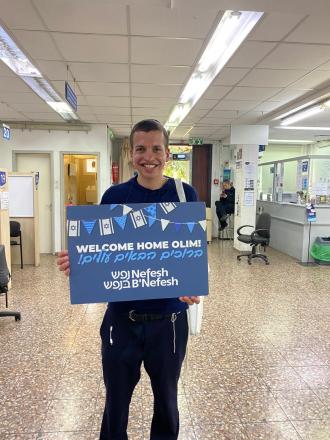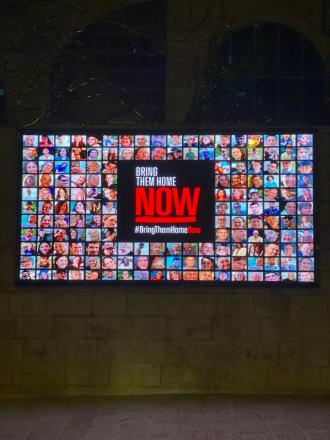Alan is Coming to the Baltimore-Washington area February 20 and 21st. If you would like to schedule a meeting with him for an intake session please email info@alanfitness.com or call our office 516-568-5027
They come into my office all the time. The typical case is someone who is obese and has other comorbidities such as type 2 diabetes, heart disease, high cholesterol, high blood pressure or fatigue and emotional issues. By coming to see me, they have let their guard down and are ready to finally take the steps necessary in order to change their life around and start the process of being healthy, happy, fit and functional. But, if there is one question that I’ve heard time and time again, its, “How did I let this happen to myself?” And my answer? It’s not your fault!
Food addiction is real and it is far more prominent that one would think. Let’s take a look at addiction in general before we talk about how food has become so addictive over the last 40 years.
Food products can hijack your reward system much the same way as drugs, alcohol, and the internet. The problem is that in all addiction aside from food, a person can do without the addictive item, but we need food in order to sustain our life, so we can’t just say “do without food” as we might with drugs, alcohol gambling and the like. Let us take a look at the principles of addiction first and then we can come back to how to deal with food addiction in particular.
We become addicted to a substance or activity for the same reason that we initially try it: Because we like the way it makes us feel. And although some people may try a drug, take a drink or eat a donut and never become hooked, almost all of us have the capability to become addicted. Users cross a threshold and undergo a transition to addiction.
Research has shown the changes that take place in the brain after this transition, developing the "brain disease” model of addiction. The way we learn to survive is based on a reward system. When we do something that aids in our survival, like eating or exercising, our brain's limbic system rewards us for this behavior by releasing dopamine, a chemical that makes us feel good. Since we like the way we feel, we learn to repeat the behavior.
All substances of abuse cause the brain to release high levels of dopamine. This release can be two to 10 times the amount our brain releases normally, giving the user a sense of a "rush" or "high."
Over time, prolonged use of a substance can lead the brain to stop producing as much dopamine as it naturally does. This creates further withdrawal, leading to a physical dependency -- the addict needs to use more of the substance just to feel normal, creating a vicious cycle that can be difficult to break. There is a category of food which seems to be more addictive than others called hyper-palatables. Is sugar as addictive as heroin or cocaine? Studies say yes. As Yale University professor Dr. Kelly Brownell states, “Food can act on the brain as an addictive substance. Certain constituents of food, sugar in particular, may hijack the brain and override will, judgment and personal responsibility”.
Food addiction is real, but not an excuse for taking the basic actions needed for our health. The basic weight loss formula of fewer calories consumed and more calories expended still applies. The need for exercise goes beyond food addiction and is needed for our health in general as well as calorie usage. And our exercise needs to be both aerobic and muscle building. The need to reduce and manage stress is vital to all aspects of our health and weight loss.
So when I tell someone who is obese that it’s not their fault—how does food addiction phenomenon play into this? Unfortunately, about 63% of food consumed in the United States today is highly processed. And the companies that manufacture and process these “food-like eatable items”—I wouldn’t call them food, no exactly how to put in enough addictive substances; salt, sugar, fat and other chemicals to make you want more, and more and then even more. Every food manufacturer hires food scientists to make sure this works. You eat these foods, and then you eat more and more and more. Your body’s mechanisms for knowing when you are truly full or truly hungry have been obliterated by these ultra-processed foods. So yes, you always want one more, and then another one more. It’s really not your fault. But how do we undo this and fix your brain’s need for more pleasure foods?
The first thing we do here in THE WELLNESS CLINIC is not just to take you off of addictive processed foods, we substitute other foods instead. People who eat real food—the kind that mostly come from plants and don’t have a long list of ingredients, will get through this process much easier. You won’t be hungry, but the first week or even two can be difficult. Drinking a lot of water is one tool that is very helpful. But the key is to not get hungry. Eat a lot of healthy, whole plant-based foods and you will quickly see they don’t have the addictive properties at all of processed foods.
One of my clients a little over a year ago was fully addicted to sugar and any and all processed foods. She went 100% plant based, started exercising and was able to tough it out for 3 weeks while her body was detoxifying. Today, she is almost 20 kilo lighter, doesn’t go near addictive foods, has reversed her kidney disease and is off all her medications, including for high blood pressure.
Yes, food addiction is real and yes, your extensive weight gain isn’t because you didn’t have enough will power. It might take time, but even this week in our clinic, two clients chose not to eat foods that they used to binge on and would never say “no” to. All because they know how much better they feel now all the time and not just for the 3-4 minutes they get a “high” from eating a particular food.
Choosing the main principles of lifestyle medicine of a plant strong diet, exercise, good sleep and good stress management can beat back the addictive qualities of the poor quality, ultra-processed food like substances that unfortunately, have become the mainstay of our diet. When you break food addictions, you “add hours to your day, days to your year and years to your life.”
Alan Freishtat is an A.C.E. CERTIFIED PERSONAL TRAINER and a BEHAVIORAL CHANGE and WELLNESS COACH with over 23 years of professional experience. Alan is the creator and director of The Wellness Clinic for prevention and reversal of illness and disease. He is available for private coaching sessions, consultations, assessments and personalized workout programs both in his office and by telephone and skype. Alan also lectures and gives seminars and workshops. He can be reached at 02-651-8502 or 050-555-7175, or by email at alan@alanfitness.com Check out the his web site – www.alanfitness.com US Line: 516-568-5027














